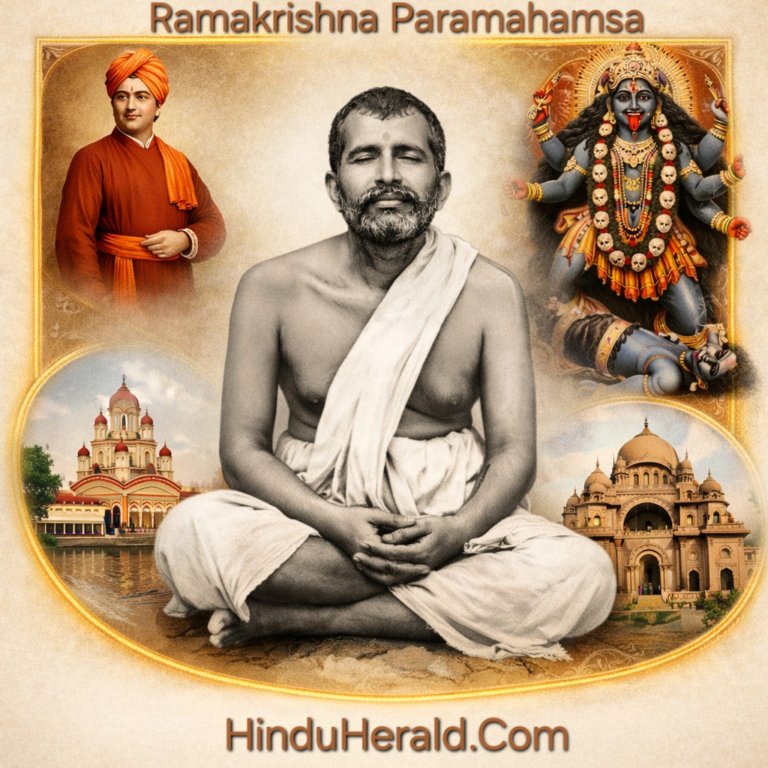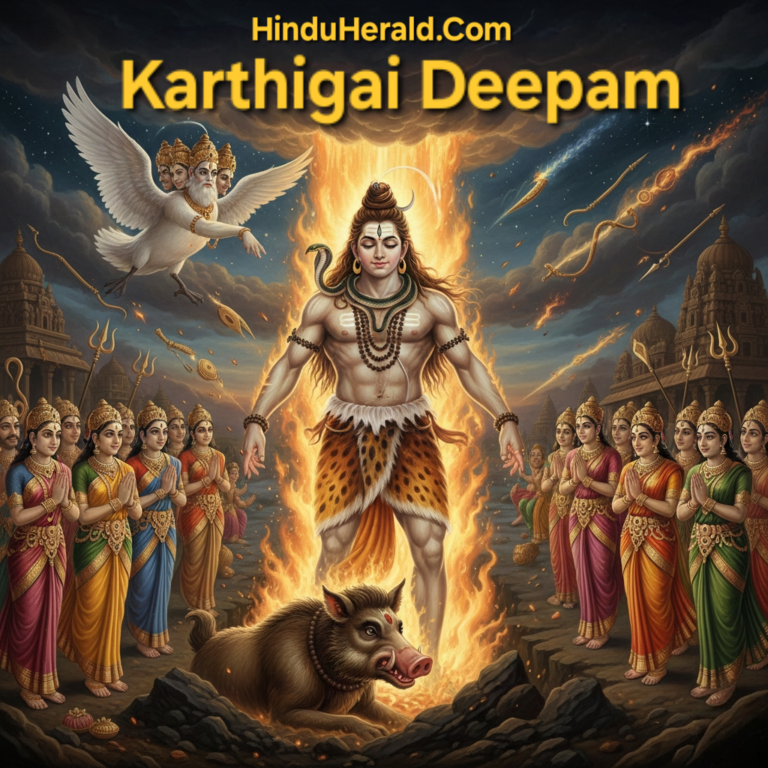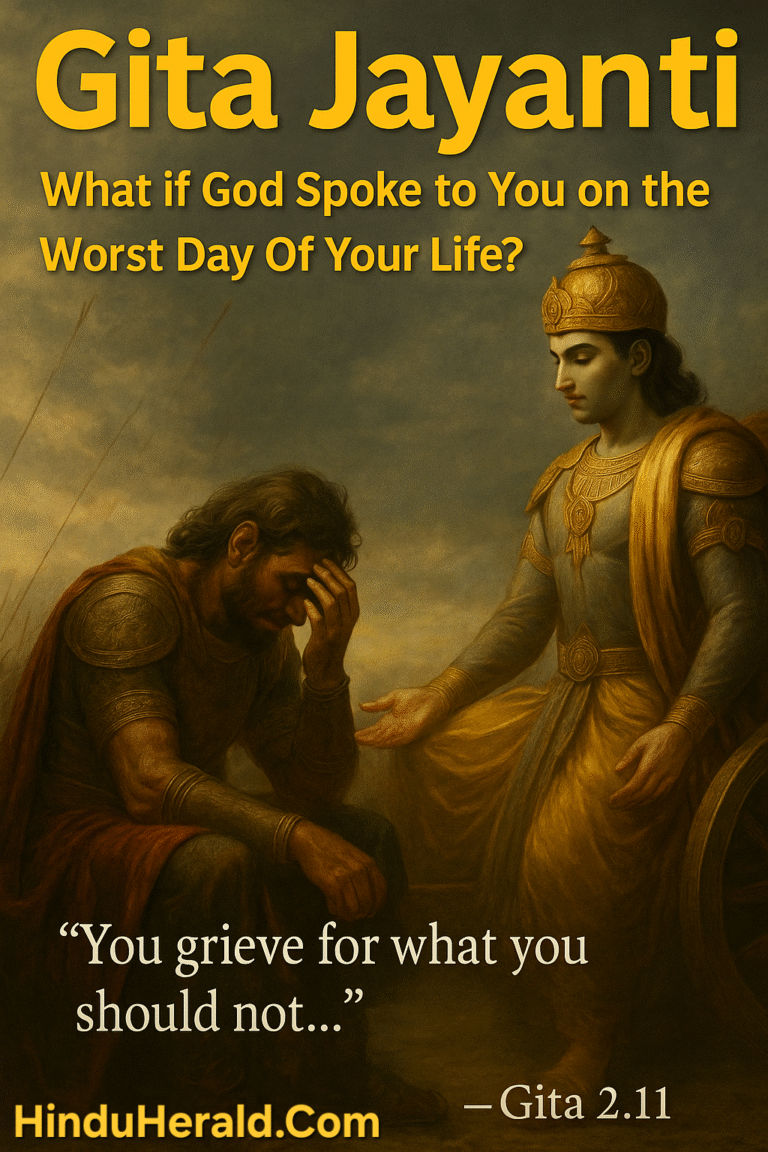
In the Age of AI, Do We Still Need a Guru?
By Hindu Herald Staff
In a world where artificial intelligence can answer your questions, generate spiritual quotes, and summarize entire scriptures in seconds — one might wonder: Do we still need a guru?
After all, the internet is overflowing with satsangs, e-books, virtual classes, and digital gurus broadcasting from every corner of the globe. With just a voice command, you can learn Sanskrit shlokas, chant the Gayatri Mantra, or listen to the Gita in five different translations. So why cling to the idea of a traditional guru — a living, breathing, imperfect human guide?
The answer lies not in information, but in transformation.
The Guru Is Not Just a Teacher
In Sanskrit, the word Guru comes from Gu (darkness) and Ru (remover). A guru doesn’t just explain things — they remove the veil that blocks you from experiencing truth. They don’t just teach — they transmit.
But what does it mean to transmit truth?
Unlike a professor or even an AI program, a true guru imparts śakti — the spiritual force that awakens your inner knowing. This is why Ramakrishna Paramahamsa didn’t just speak to Vivekananda — he touched his chest, and Vivekananda fell into samadhi. The guru’s consciousness acts like a tuning fork that vibrates yours into resonance. It’s not verbal. It’s vibrational.
The silent guru form of Dakshinamurti reveals this perfectly — truth poured forth not through speech, but through presence.
The great saint Ramakrishna Paramahamsa once said:
“The guru is like a matchstick. He lights the fire of knowledge in the disciple’s heart.”
AI can recite the verses. But it cannot ignite your soul.
The Inner Algorithm Is Not Always Right
AI relies on pattern recognition. It analyzes your behavior and suggests what it thinks you need. But a true guru sees beyond your patterns.
A real guru may challenge you, disturb your comfort, or lovingly dismantle your false beliefs. They know when you’re ready — and when you’re not. They time their words, silences, and glances with divine precision.
Can’t AI challenge us too?
To some degree — yes.
Generative AI can:
- Ask thoughtful questions
- Reflect back inconsistencies
- Help you examine assumptions
- Offer multiple philosophical lenses to test your thinking
But it stops at the threshold of consciousness.
A guru is not just intellectually sharp. A guru is energetically awake. They don’t just respond — they read you. They know when your ego is posturing, when your heart is open, and when you’re only pretending to listen. They challenge you with timing and inner vision — not just data.
AI may give you a “mirror” of your mind. But a guru reflects your soul.
But Isn’t God the Ultimate Guru?
Yes. The ultimate guru is Ishvara — the indwelling Self.
But in most cases, we need a living reflection to direct our gaze inward.
Arjuna had knowledge. He had training. He had dharma. And still, he collapsed on the battlefield. No app could’ve lifted him. He didn’t need a search engine — he needed Krishna.
Even in the Bhagavad Gita (4.34), Krishna says:
“Approach the realized master with humility, inquiry, and service. The wise will instruct you in knowledge.”
He does not say, “Just consult the best algorithm.”
But What If AI Existed Back Then?
Would Krishna still be needed?
Absolutely. Arjuna’s crisis wasn’t informational. It was existential.
He knew the dharma. He just couldn’t act on it. He was paralyzed by grief, attachment, and fear.
AI can explain karma, but it can’t clear your samskaras.
Would AI have prevented different schools of Vedanta?
Even with perfect scriptures and clean translations, realization depends on:
- The seeker’s inner readiness
- Their karmic lens
- Their bhava (inner disposition or devotional attitude)
That’s why different truths emerged:
- Advaita for those ripe for non-dual Self-realization
- Dvaita for those moved by devotion to a personal God
- Vishishtadvaita for those who see unity with distinction — like sparks from a flame or limbs of a body
Even if AI were trained on all the Vedas, it still couldn’t reduce the diversity of realization — because truth unfolds according to the seeker’s consciousness, not just their comprehension.
The Guru in the Book — or Beyond the Book?
On this Guru Purnima, let us honor not just the outer form of a guru, but the inner flame that awakens through their presence — a flame no screen can substitute.
Let us be open to learning from books, from AI, from life.
But let us not confuse words with wisdom, or clarity with realization.
AI can open the book — only the guru can help you enter it.
Closing Reflection
In an age of synthetic intelligence, the ancient bond between guru and disciple feels more sacred than ever. The guru may not trend, may not have perfect branding or YouTube reach — but when you meet them, you’ll know.
Because your mind may still have questions.
But your soul will stop searching.
It will have remembered.



